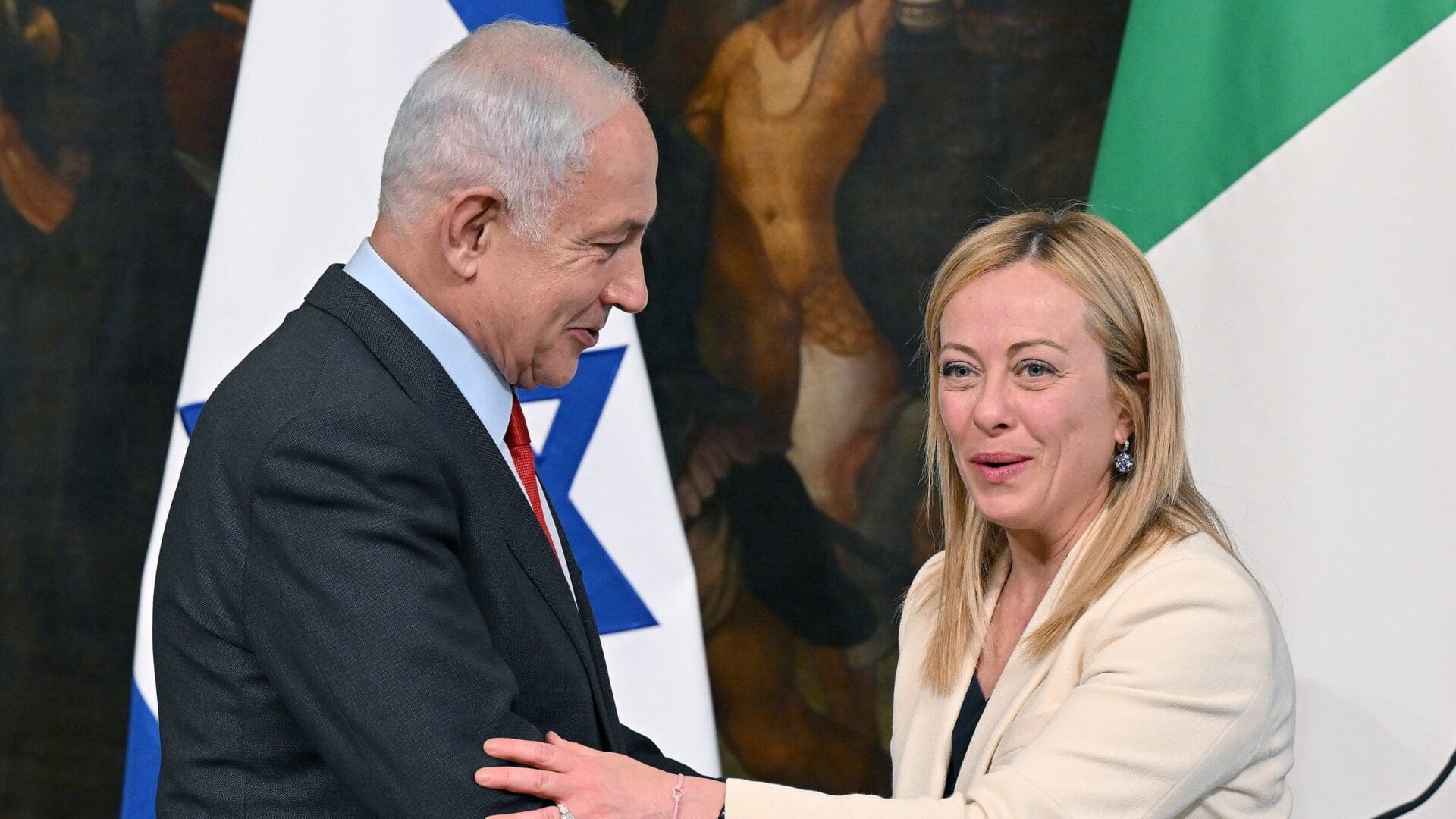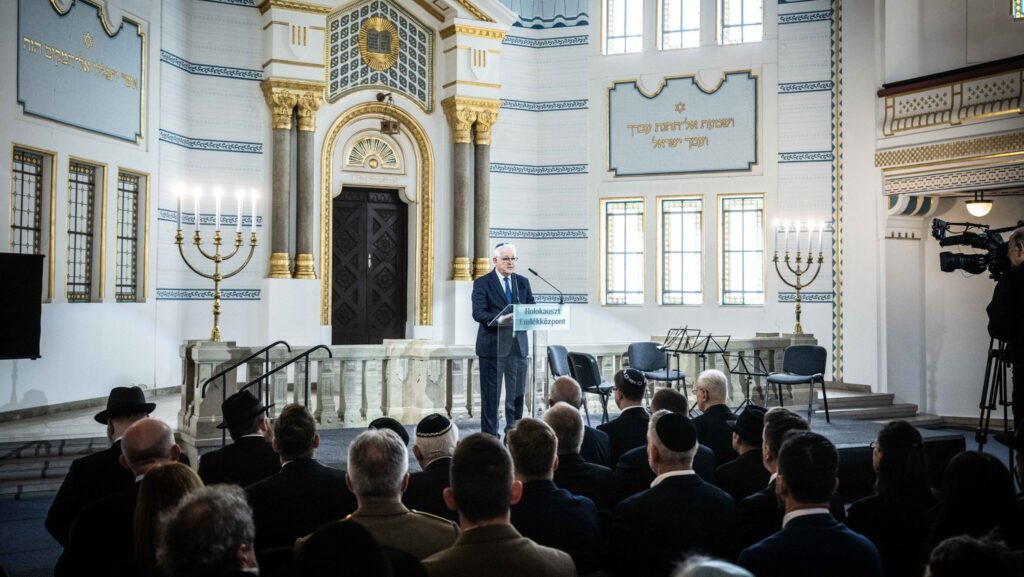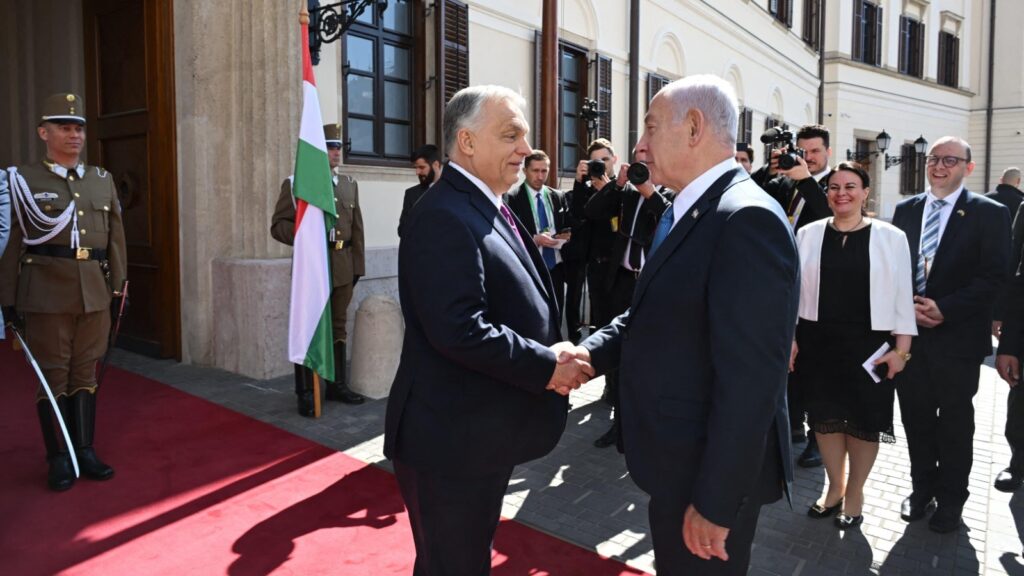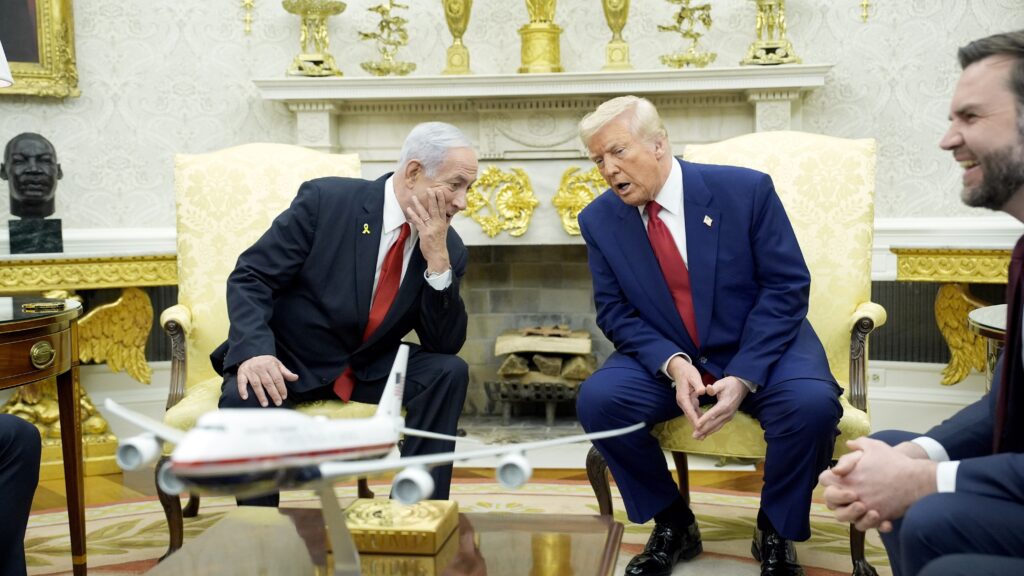In Europe’s desperate need for new, secure energy suppliers, Israel could bring a real alternative to the continent. Jerusalem owns substantial gas reserves near its offshore fields in the Mediterranean, which it plans to gradually exploit for export, too. The EU appears to be wasting no time when it comes to its energy security, while Italy seeks to be the foremost entry point when Israeli gas starts flowing to the old continent.
‘The Italian Job’
‘We have gas reserves that we are now exporting and we’d like to expedite more gas exports to Europe through Italy’, Israeli Prime Minister Benjamin Netanyahu declared after meeting with his Italian counterpart Giorgia Meloni in Rome on 10 March. The interests of the two leaders seem to be converging, as Meloni seeks to make his country independent of toxic Russian energy, while Israel wants to increase its gas exports to Italy and Europe from its extensive offshore gas fields.
After meeting with PM Netanyahu, Italian Minister of Enterprises Adolfo Urso also welcomed Israeli plans an increase in gas exports and highlighted that ‘Italy aims to become the European gas hub and Israel must be the point of strength for gas production.’
However, the technical conditions for making that happen are far from ideal. Since Israel lacks a gas pipeline to connect its drilling platforms in the Mediterranean to southern Europe, exporting Israeli gas in liquid form seems the most obvious solution, with the possibility of creating a liquefied natural gas terminal near Israel.
’I think we should look very carefully and quickly at the possibility of adding an LNG facility, perhaps in Cyprus, to increase Israel’s export capacities of gas to Italy, and from Italy to Europe,’ Netanyahu noted after his meeting with Minister Urso.
Another solution for the transport could be the construction of the EastMed pipeline, a 1900-kilometre-long submarine pipeline between Israeli gas fields and Europe, with an annual transport capacity of 10 billion cubic metres. This would allow Israeli gas to reach Otranto, Italy, via the Poseidon pipeline, by way of Cyprus and Greece. But even if it gets approved, the €6 billion EastMed project is only expected to be up and running from 2027 at the earliest. A final decision on the project will be taken by the end of the year, Fabrizio Mattana, the executive vice-president of Italian gas company Edison told Reuters on 20 March.
The EU Has Already Inked a Deal
On 15 June 2022, EU Commission President Ursula von der Leyen signed a memorandum of understanding (MoU) with Egypt and Israel to export Israeli gas to the EU, to ditch heavy dependency on Russian energy. The President of the Commissioner called the MoU a ‘historic agreement’ which was the first direct deal between Brussels and the Jewish state allowing significant exports of Israeli gas to the EU.
According to the plans, Israeli gas will be brought via a pipeline to Egypt’s LNG terminal on the Mediterranean, where it will be liquefied and re-exported as LNG on tankers to Europe. The agreement is expected to give a push to Jerusalem to continue its gas exploration in the Karish gas field located in the Eastern Mediterranean.
The total quantity of natural gas produced by Israel and Egypt for European export may reach 20 bcm, which seems a drop in a bucket at first sight, but it is certainly not a bad start for the EU scrambling to find new gas suppliers. In 2021, the European Union imported 155 bcm of natural gas from Russia, accounting for 45 per cent of its needs.
Turning Gas into Political Capital
Israel has emerged as a gas exporter in recent years following major offshore gas field discoveries in 2009 and 2010. Now Israel is believed to have over 600 bcm of natural gas reserves near its shores under the sea. After reaching domestic independence Israel decided to turn to export. Israel also to turns its energy resources into foreign policy capital and use it to ease its isolation in the region. In 2016, Israel signed a landmark $10 billion, 15-year gas export deal with Jordan and a $15 billion deal with Egypt in 2018. The deals helped Israel to warm its ties with two of its neighbouring countries with which it had a cordial relationship after they made peace with the Jewish state decades earlier.
In October 2022, Israel and Lebanon signed a US-brokered agreement to end territorial dispute in the Eastern tip of the Mediterranean Sea through proposed boundary lines on gas and oil exploration. The historic deal allows both Israel and Lebanon to benefit from hydrocarbons and natural gas exploration from enormous gas fields near their coastline including Karish and Qana fields, which could bring substantial revenues to Israel and economically strapped Lebanon too. (In 2021, Israel exported 40 per cent of its gas produced, generating $250 million in revenue for the country.)
Now Israel could easily apply the same playbook as European countries, and the EU is turning increasingly towards the Eastern Mediterranean for solutions to its energy needs. While Europe desperately needs new partners to wean itself off Russian gas, by becoming an energy exporter, Israel could reduce its isolation and thaw its icy relations with the EU—something that is even more valuable than export revenues for Jerusalem. And agreements like the recent MoU, which put Israel on the EU’s energy map, are certainly contributing to Israel being seen as a strategic partner by the bloc, which Israel can use as leverage, for example, in moving European countries closer to Israel’s position on Iran’s nuclear program.








